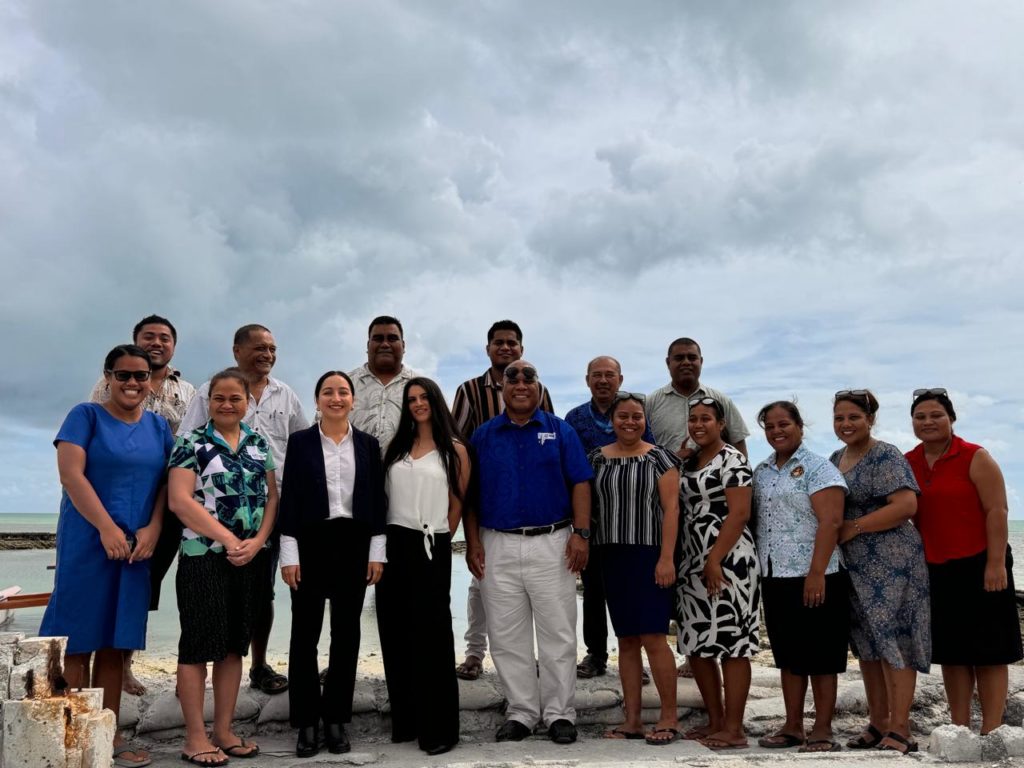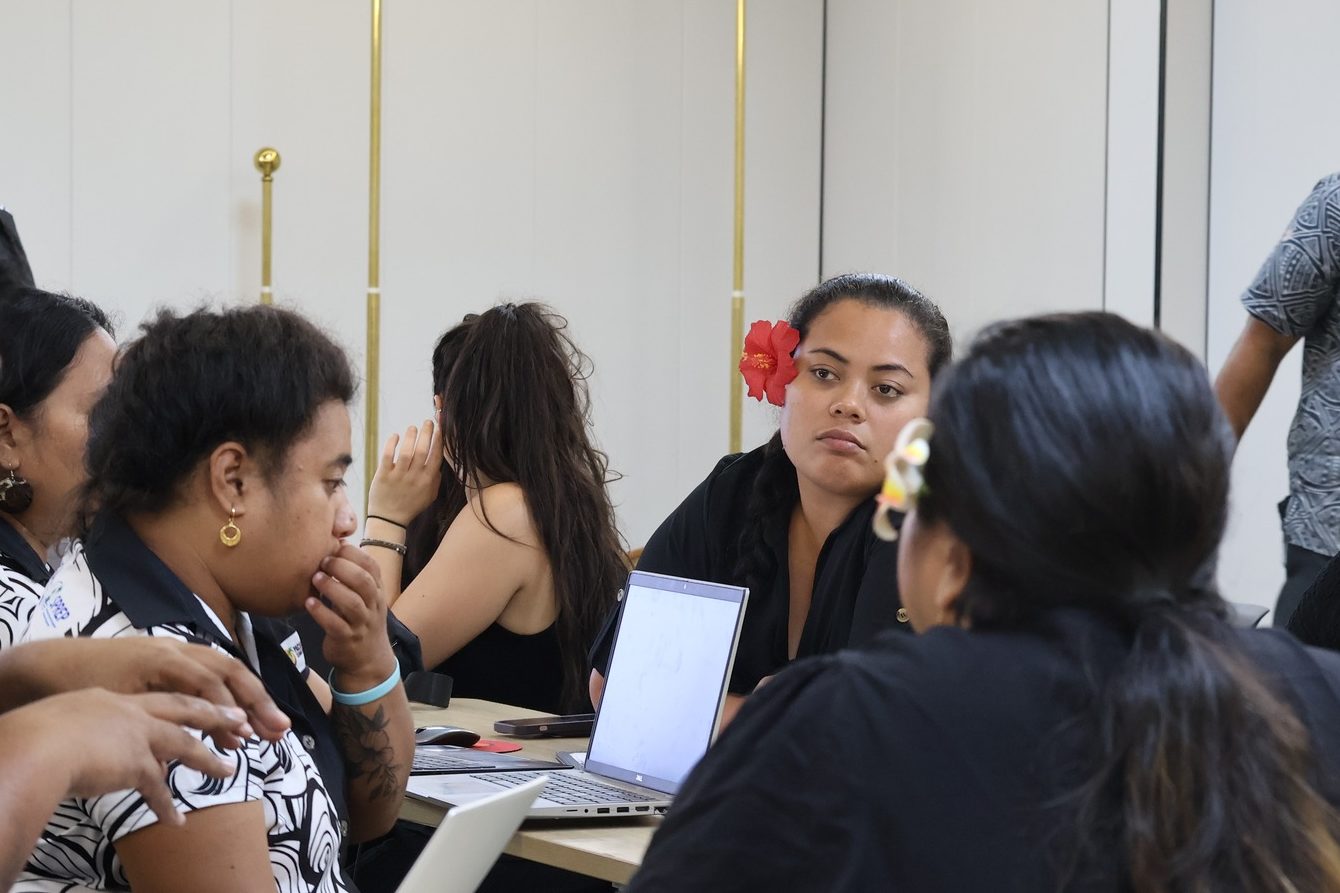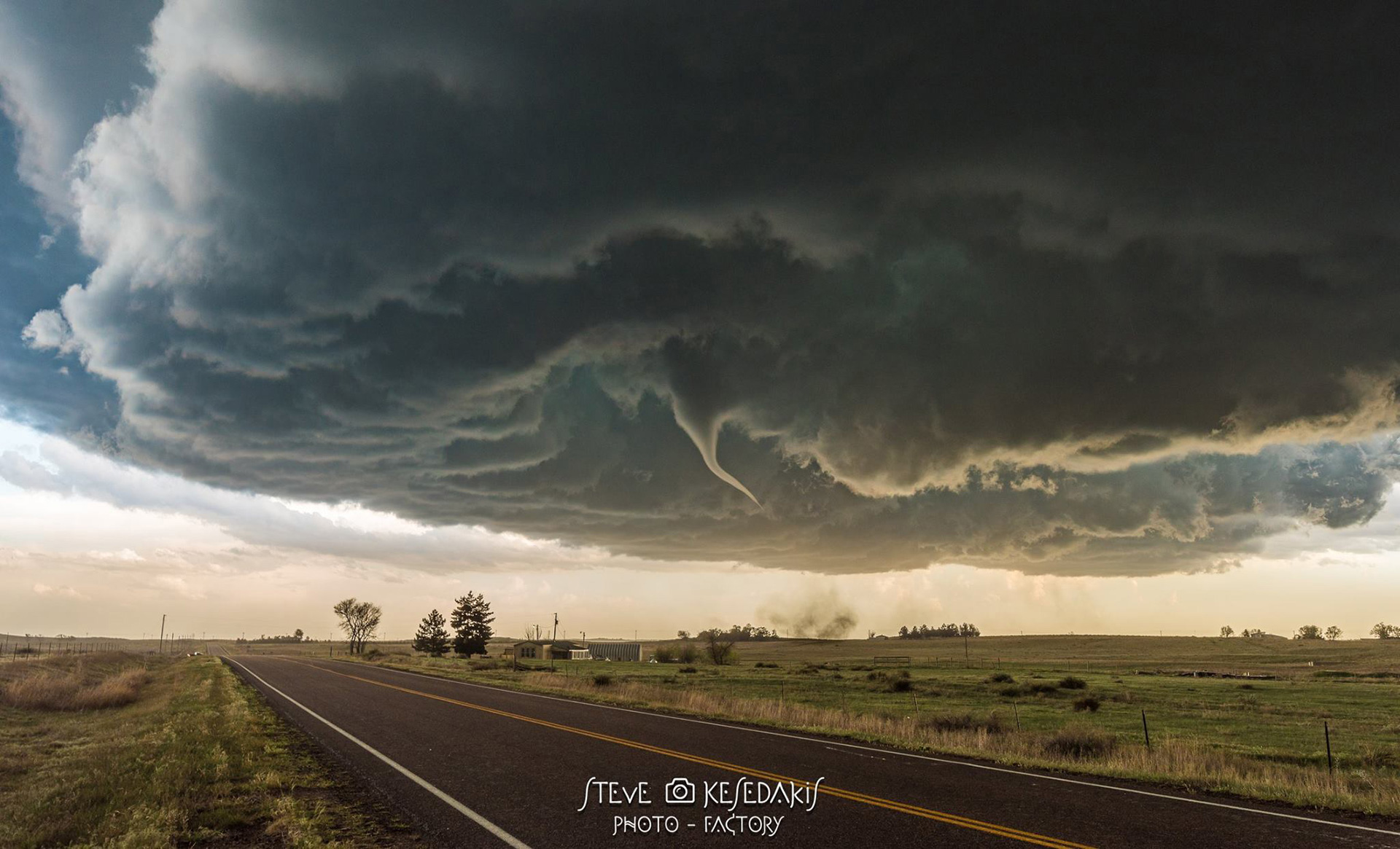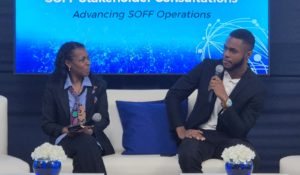Kiribati: A Nation on the Frontline of Climate Change

Launch of the SOFF Investment phase in Kiribati, June 2025.
The Republic of Kiribati is an archipelago of 33 low-lying Islands in the Pacific Ocean, making it uniquely exposed to the escalating impacts of climate change. With most of the Islands sitting less than two metres above sea level, it is recognised as one of the world’s most at-risk country facing the impacts of climate change (World Bank, 2021). The region’s high exposure to cyclones and rising sea levels, combined with limited weather and climate monitoring capacity causes annual disaster losses equivalent to 2 to 3% of Pacific countries’ GDP. Its geographic isolation further exacerbates the population’s vulnerability to the impacts of climate change, leading to various health issues linked to the multiplication of extreme weather events (WMO State of the Global Climate 2024).
A concentrated nexus of climate vulnerabilities
As the water resources of Kiribati depend heavily on rainfall, the intensification of drought periods, combined with the groundwater salinization due to ocean warming and rising sea levels expose the country to severe water shortages. With an historical warming of between 0.1°C–0.2°C per decade since 1950 (World Bank), the scarcity of water directly impacts the health of Kiribati’s population and its agricultural sector which suffers from increasing heat (WHO, 2024).
“Kiribati faces a diverse set of risks from climate change but data and reliable model projections are lacking, presenting challenges for decision makers” states Ayda Villalobos Castro, Project Task Manager for United Nations Environment Programme (UNEP).
As highlighted in the World Bank Climate Risk Country Profile, the multitude of climate change risks faced by Kiribati underscores the population’s need for international assistance in improving observations and implementing resilience measures to adapt livelihoods on the islands. The Australian government has a long-standing commitment to support adaptation efforts through its partnerships with the government of Kiribati (Australian Government, Pacific Risk Profile, 2021). Similarly, Korea International Cooperation Agency’s Te Mamauri project is dedicated to implementing a national health system resilient to climate change.
SOFF investment to close critical data gaps for enhanced resilience in the Pacific and better forecasting worldwide
The recent impact study conducted by the European Center for Medium-Range Weather Forecasts (ECMWF) shows that investing in data spare regions brings the greatest improvements in the quality of global forecasts. As a financing mechanism providing long-term funding and technical expertise to countries with the most severe shortfalls in observations, the Systematic Observations Financing Facility (SOFF) is prioritising Least Developed Countries (LDCs) and Small Island Developing States (SIDS).
Investment in SIDS and LDCs is crucial due to the importance of data in the regions. A single weather-balloon sounding launched over the sparsely observed Pacific has far greater impact on improvement of global forecast skill than one released over data-rich Europe. On the other hand, there is a major discrepancy in global efforts to collect vital weather and climate data: the countries with the largest gaps in observations are frequently those without the financial capacity to afford the necessary infrastructure and expertise. For example, Singapore, a small country with high GDP, has 4.3 million times more economic means to cover the costs of generating and internationally exchanging weather and climate data compared to Kiribati, a country with a large surface area to be observed and relatively low GDP.
In Kiribati, SOFF and its operational partners, the Australian Bureau Of Meteorology (serving as SOFF Peer Advisor) and UNEP (as Implementing Entity) are working with the Kiribati Meteorological Service to provide high-quality data essential for informed decision-making. Their joint effort aims to strengthen climate adaptation and resilient development in Kiribati through improved weather forecasts, early warning systems, and climate information services.
“SOFF investments provide crucial support to Kiribati’s Meteorological Service for improved weather monitoring, which is the first step in creating more accurate forecasts and warnings for the people. By helping to establish a strong and functional weather observation system, SOFF is building a critical part of Kiribati’s early warning system” said Tebwatoki Tawetia, President of the Secretary Office of Te Beretitenti, Ministry responsible for Meteorology in Kiribati, and Chairman of the Kiribati SOFF Project Steering Committee.
To meet Kiribati’s targets in terms of observations, the SOFF Steering Committee approved a USD 10 Million to ensure the upgrading of one upper air station and five surface stations, as well as the implementation of nine new surface stations and two upper air stations within five years.
Why is the Pacific a critical area for better weather and climate forecasts
Strengthening adaptive capacity and the resilience of Kiribati’s islands cannot be achieved without access to better climate and weather observations. “Kiribati is on the front line of climate change. It doesn’t only face the rising seas, but also storms, salt water intrusion, and weather phenomena like El Niño and La Niña” said Ayda Villalobos Castro. She added: “When it comes to weather phenomena like El Niño or La Niña, having accurate data from Kiribati makes it easier to predict the severity of impacts, such as cyclones in Southern Africa, or unusual weather in parts of Europe. When it comes to weather and data, becuase of its location in the Central Pacific, Kiribati observations plays a significant role for global weather models.”
The Pacific represents 15% of the world’s surface, yet only 6 upper air stations in the region are compliant according to the Global GBON Gap Analysis (June 2023). The ECWMF study estimates that increasing surface observations in the Pacific would result in a reduction in global forecast uncertainty by up to 20% and would generate annual benefits of over US$ 300 million for the region. Kiribati’s improvement in observations will help fill observation gaps in undeserved areas of the Pacific, yielding huge returns in forecast accuracy worldwide.
Building inclusive systematic observations systems in Kiribati
Closing the data gap in the Pacific through the implementation of weather stations in Kiribati comes with challenges, particularly due to the remote locations of the islands. Strengthening Kiribati’s observation capacity also requires respecting the country’s traditional knowledge and culture to ensure a smooth implementation. SOFF’s ongoing investment in Kiribati is supporting the Kiribati Metereological Service (KMS), in collaboration with UNEP and Australia’s Bureau of Meteorology (BoM). SOFF’s partners take particular care to include local population in the process: “As operational partner, we need to take into consideration the culture of the place we are going to carry out the activities(…) People need to be consulted to buy into the project and make it successful. It’s not just about land acquisition with the ministries, it’s connecting with owners of the land and surrounding population, understand how that will affect them, and whether or not they agree with it” said Tecla Pellerito from the BoM of Australia.

Inception workshop and Stakeholders Engagement Session, picture from Kiribati Meteorological Service.
She emphasized that the implementation of new observation stations is a community decision relying on good communication and collaboration with partners and the local population. The recent SOFF stakeholder engagement workshop hosted in Kiribati by The Office of Te Beretitenti in June 2025 succesfully showcased the importance of integrating traditional knowledge and acknowledging the hierarchy of Kiribati’s culture, which places a high value on respect for elder members of the community.
During this exchange of insights, the partners were pleased to note the gender parity in female representation at both the stakeholder and Steering committee meetings. This positive trend is further reinforced by the gender training session led last week by the representative from the Ministry of Women, Youth, Sport and Social Affairs (MWYSSA) as part of the development of the SOFF Gender Gap Analysis and Stakeholder Engagement Plan. Participants are developing innovative initiatives related to disability, gender violence measurement and intergenerational knowledge sharing.

SOFF Gender Training Session for Kiribati Meteorological Service staff, led by the Ministry of Women, Youth, Sport and Social Affairs.
Looking forward: The Weather Ready Pacific Programme (WRPP) and SOFF support in the Pacific
Signed at the last COP29 in Baku, the Agreement on Complementarity and Collaboration between SOFF and WRPP steps up the collaboration between stakeholders and paves the way for stronger partnerships, facilitating regional integration and a more resilient future for Kiribati and the broader Pacific. Together, SOFF and WRPP underscore a long-term agreement to building climate resilience and delivering life-saving early warnings in the Pacific. They have committed to providing coordinated support across the meteorological value chain and to mobilizing additional resources to strengthen the capacity of Pacific Islands National Meteorological and Hydrological Services (NMHS).
SOFF provides long-term, results-based, grant-only financial and peer-to-peer technical support. SOFF opened its doors for business in July 2022, and thanks to the support of 12 pioneer funders with contributions already providing initial support to 61 countries.
In the Pacific, Kiribati and the Solomon Islands are already in the implementation phase. Meanwhile, the Maldives in the Indian Ocean represents a prime example of collaboration between SOFF and the Green Climate Fund (GCF) in the region. To complement SOFF’s investment in the Maldives, the 42nd GCF Board approved a $25M USD project Toward Risk-Aware and Climate-Resilient Communities – Strengthening Climate Services and Impact-Based Multi-Hazard Early Warning in the Maldives with UNEP as the Accredited Entity. This initiative will ensure coherent investments across the entire early warning value chain.
More countries, such as Samoa and Nauru, are conditionally approved to receive SOFF support. To meet the requests of all eligible countries and provide support in line with its work program, SOFF needs to raise $200 million USD in funding over the next two years. SOFF is looking at innovative ways to mobilise finance through the development of the SOFF Impact Bond, a pioneer finance vehicle that will ensure frontload resources to scale up access to weather and climate data.
Many thanks to all our partners and collaborators who agreed to share their insights for this article.
About
- Systematic Observations Financing Facility (SOFF): SOFF is a UN specialized fund co-created by WMO, UNDP and UNEP to close the climate and weather observations data gap in countries with the most severe shortfalls in observations, prioritizing Least Developed Countries (LDCs) and SIDS. SOFF provides long term financial and technical assistance to support the acquisition and international sharing of basic weather and climate observations, according to the internationally agreed Global Basic Observing Network (GBON) regulations. SOFF is a foundational element and delivery vehicle of the UN Early Warnings for All Initiative.
- Global Basic Observing Network (GBON): GBON paves the way for a radical overhaul of the international exchange of observational data, which underpins all weather, climate and water services and products. GBON sets the requirements for the acquisition and exchange of basic surface-based observing network designed, defined and monitored at the global level. GBON will improve the availability of the most essential surface-based data, which will have a direct positive impact on the quality of weather forecasts, thus helping improve the safety and well-being of citizens throughout the world.
- The Weather Ready Pacific is an initiative through the Pacific Meteorological Council and was endorsed by Pacific Islands leaders in 2021. In 2023, the decadal program of investment was listed as a partnership of priority under the Pacific Partnerships for Prosperity initiative endorsed at the Fifty-Second Pacific Islands Leaders Forum in the Cook Islands. It is a vehicle for implementing the Early Warnings for All initiative.
YOU MAY ALSO LIKE...





